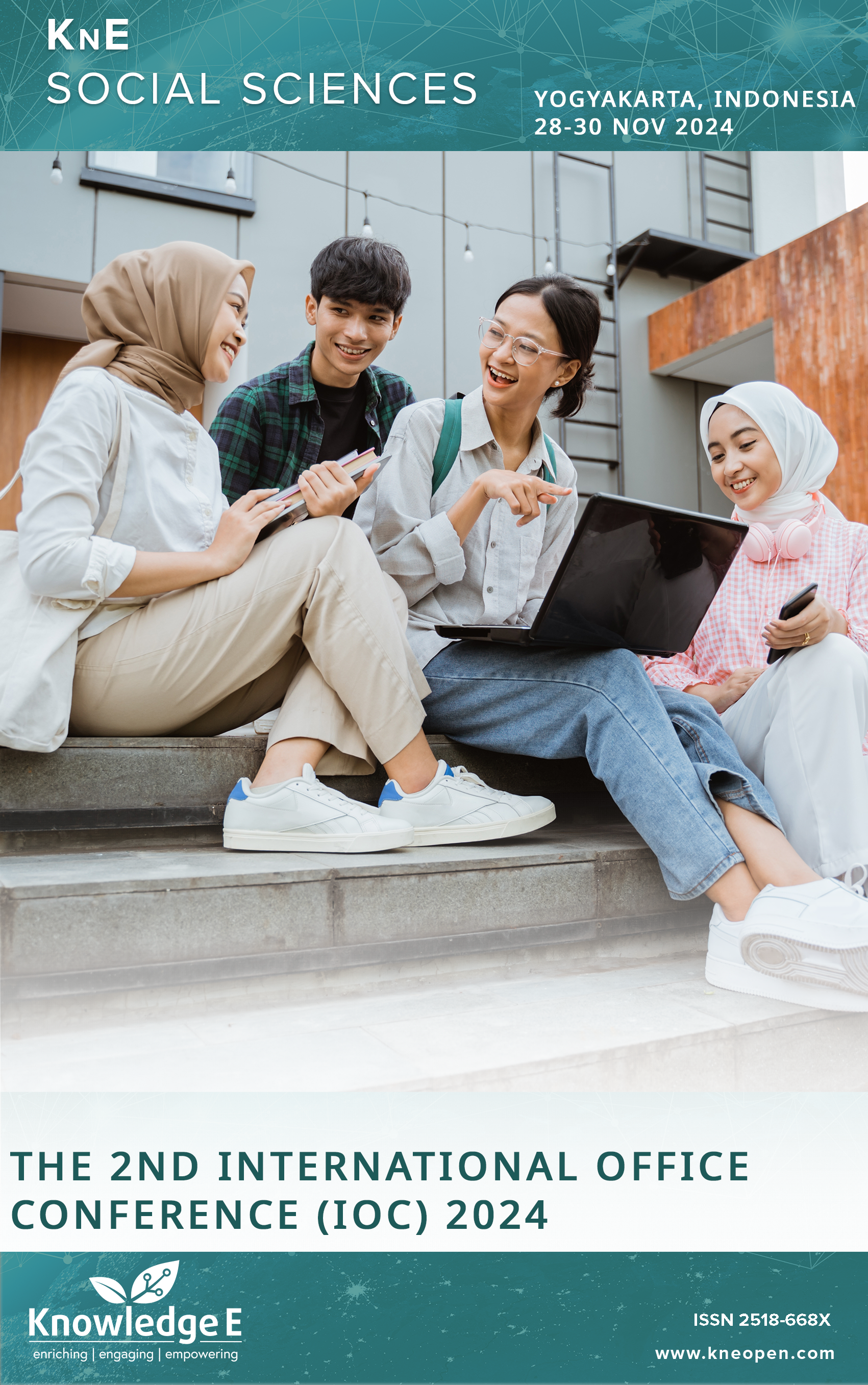Fostering Sustainable Partnership in the Halal Sector: A Triple Helix Model for Enhanced Food Security and Graduate Employability
DOI:
https://doi.org/10.18502/kss.v10i24.19801Keywords:
triple helix model, Shariah compliance, food security, food safetyAbstract
The global food system faces significant challenges in ensuring food security, food safety, and sustainability, which are vital for public health and economic stability. In Malaysia, the halal food supply chain is under increasing pressure to meet the rising demand for Shariah-compliant practices while also addressing sustainability concerns. However, the current system lacks an integrated framework that brings together universities, industries, and government agencies. Furthermore, there is a notable skills gap among graduates, making it difficult for them to meet industry requirements, thereby limiting their employability. Given these challenges, there is an urgent need for a model that not only enhances food security and safety but also improves the employability of graduates through sustainable and Shariah-compliant practice. This research seeks to address these issues by developing a sustainable Shariah-compliant model that enhances Malaysia’s food security and safety. The approach will be grounded in the triple helix model, which fosters collaboration between academia, industry, and government. This model aims to bridge the gap between theoretical knowledge, industrial needs, and government policies. This research uses quantitative research, in the form of surveys among graduates and employers, will explore the existing skill gap and assess metrics related to food safety and security. The expected outcomes of this research are multifaceted. First, it aims to enhance food security by developing a comprehensive model for Shariah-compliant food production that aligns with Malaysia’s sustainability and food safety goals. Second, the employability of graduates will be significantly improved through the acquisition of industry-relevant skills, particularly in the halal sector. Third, the research will strengthen collaboration between academia, industry, and government, leading to more effective knowledge transfer, policy-making, and industrial innovation. Finally, the research will promote sustainability within halal practices, encouraging the halal industry to adopt environmentally friendly methods without compromising Shariah compliance.
References
[1] FAO. The State of Food Security and Nutrition in the World 2021. Food and Agriculture Organization of the United Nations; 2021.
[2] Shafie S, Othman MN. Shariah-compliant food production: ensuring ethical and hygienic standards in modern agribusiness. Journal of Islamic Food Production. 2023;12(2):155–70.
[3] Tilman D, Balzer C, Hill J, Befort BL. Global food demand and the sustainable intensification of agriculture. Proc Natl Acad Sci USA. 2011 Dec;108(50):20260–4.
[4] Tilman D, et al. Global agriculture and environmental sustainability. Nat Sustain. 2019;2(1):20–5.
[5] Hanzaee KH, Ramezani MR. Shariah-compliant and sustainable food production: integrating ethical standards and sustainability practices. Journal of Ethical Food Systems. 2022;7(3):200–14.
[6] Jusoh NA, et al. Shariah-compliant food production systems: challenges and opportunities in Malaysia. Journal of Islamic Business and Economics. 2023;5(1):134– 48.
[7] Thompson S, Larkin P, Williams R. Advancing Food Safety through Technological Innovation: The Role of Collaboration. Food Control. 2021;132:108413.
[8] Tian F. Blockchain technology for food traceability: ensuring transparency and safety in the supply chain. Journal of Digital Food Systems. 2022;9(4):455–67.
[9] Etzkowitz H, Leydesdorff L. The Triple Helix: University-industry-government innovation and entrepreneurship. Routledge Press; 2020.
[10] Ranga M, Etzkowitz H. The Triple Helix Model of Innovation: Its History and Future. Springer; 2020.
[11] Ranga M, Etzkowitz H. Triple Helix systems: analyzing the dynamic linkages between, academia, industry, and government. International Journal of Innovation Studies. 2020;3(1):50–68.
[12] Thompson S, et al. Fostering innovation in agribusiness through Triple Helix collaboration. Journal of Agribusiness Innovation. 2021;6(2):75–88.
[13] He Z, Zhang J, Xu L. Technological Advancements in Agriculture: The Role of Digital Traceability in Sustainable Agribusiness. Agric Technol Thail. 2022;17(3):53–68.
[14] Pereira G, Silva P, Costa F. Collaborative Innovation in Agribusiness: A Triple Helix Approach to Enhancing Food Security in Developing Countries. International Journal of Agricultural Innovation. 2023;14(1):22–34.
[15] Yorke M. Employability in higher education: what it is and what it is not. Higher Education Policy Journal. 2021;34(3):232–45.
[16] Ismail M, Mohd Saad N, Alias R. Enhancing TVET education: aligning curricula with industry standards through continuous professional development. Journal of Technical Education and Training. 2024;16(1):45–58.
[17] Sani AN, Karim MS, Arshad TN. Skills for employability: A review of challenges in the Malaysian halal industry. Malaysian Journal of Learning and Instruction. 2021;18(1):34– 55.
[18] Hassan R, Arif S, Sidek S. Halal food production and sustainable development in Malaysia. J Islamic Mark. 2020;11(3):812–31.
Published
How to Cite
Issue
Section
License
Copyright (c) 2025 Noor Saidatul Natrah binti Saaidun, Ahmad Shabudin bin Ariffin, Asyraf Isyraqi bin Jamil, Nainatul Farzuha binti Nor

This work is licensed under a Creative Commons Attribution 4.0 International License.

